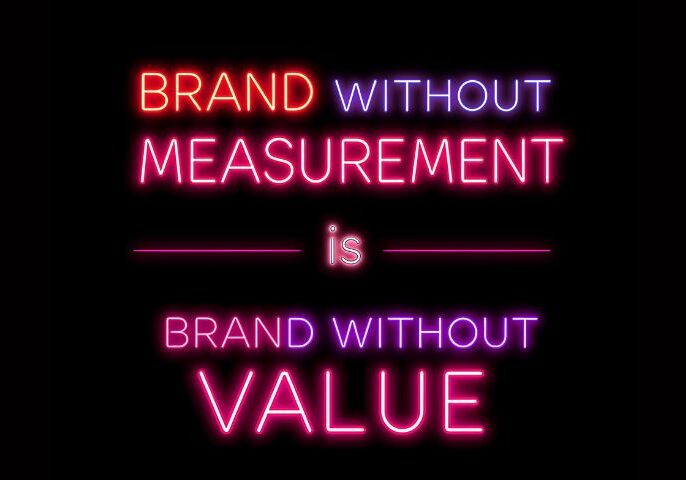Trust is in short supply. Customers are sceptical of big brands. Employees are tired of workplaces that talk values but reward short-term wins. Communities are quick to call out tokenism and greenwashing.
Against this backdrop, one thing is clear: the organisations that thrive are those that know why they exist. Not just to make a profit. Not just to tick a CSR box. But to create genuine value for people and the planet.
Being purpose-led is not a communications exercise. It is a strategic choice that shapes how decisions get made, how people show up to work, and how organisations navigate uncertainty. Done well, it builds loyalty, resilience, and long-term growth. Poorly done, it gets called out for what it is: posturing.
At Not Another Marketing Agency, we have seen both sides. We have worked with brilliant, purpose-driven teams who are working hard to build communities and transform industries, and we have watched others talk about “purpose” while quietly defaulting to business as usual. The difference is not the mission statement pinned on the wall. It is whether purpose is lived every day, embedded into culture and choices.
Why purpose matters now
In recent years, research has consistently shown the power of purpose:
- Deloitte reports that purpose-driven companies grow three times faster on average than their competitors.
- PwC found that 79% of business leaders believe purpose is central to success.
- Yet, only 34% of employees think their company has a strong purpose that guides decision-making.
That gap is telling. Too many organisations treat purpose as an external-facing message rather than an internal compass. But in today’s volatile climate of economic pressures, climate crisis, and rapid technological change, purpose is not a “nice to have.” It is an anchor.
It gives organisations a centre of gravity when everything else is shifting.
Resilience comes from clarity
Every business faces setbacks: supply chain shocks, funding cuts, lost clients, and unexpected regulations. The difference is how organisations respond.
Teams with a clear sense of purpose are more resilient because they can connect challenges back to the bigger “why.” Instead of viewing obstacles as fatal blows, they see them as part of a meaningful journey. That mindset fosters adaptability and innovation.
Think of Patagonia, whose purpose has long been to “save our home planet.” When the company faced criticism over environmental trade-offs, it did not shy away. It doubled down, funnelling profits into environmental action and restructuring ownership to lock in its mission. The result? Brand loyalty and resilience are qualities that most businesses can only dream of.
Purpose does not eliminate hardship. But it frames hardship in a way that sustains people through it.
Purpose creates alignment
Without purpose, organisations drift. Decisions are made based on short-term gains, personality clashes, or the loudest voice in the boardroom. The result is inconsistency and often distrust.
With purpose, decision-making sharpens. The question is not just “Will this make money?” but “Does this bring us closer to the change we exist to create?”
That alignment builds integrity. And integrity is currency. In a world where Edelman’s Trust Barometer (2024) shows only 42% of people trust business leaders to do what is right, integrity is a differentiator.
Purpose-led organisations can cut through cynicism because their choices line up with their words.
Talent wants meaning, not perks
Forget beanbags and free coffee. The best people are not looking for gimmicks. They are looking for meaning.
A 2022 McKinsey study found that 70% of employees say their sense of purpose is defined by their work. Among Gen Z, it is even higher. These employees do not just want a job. They want to contribute to something bigger than themselves.
When organisations can articulate and live their purpose, they attract and retain talent that is motivated, creative, and engaged. Purpose becomes a competitive advantage in the talent market.
But the opposite is also true. If a business claims to be purpose-led but fails to show it in practice, employees leave. Quickly. And often noisily on Glassdoor, LinkedIn, or even TikTok.
Purpose must move beyond marketing
Here is the uncomfortable truth. Many organisations get purpose wrong because they treat it as a brand message. They polish slogans about sustainability or inclusivity, but when tough decisions arrive – sourcing, redundancies, investments – the slogans crumble.
True purpose shows up when it costs you something. When you choose the harder option because it aligns with your values, that is when employees and customers believe you mean it.
Take the Co-op Group in the UK. During the cost-of-living crisis, it chose to absorb rising costs in specific product lines rather than pass them entirely onto customers. That decision hit short-term profits, but it aligned with its purpose of championing fairness and community. The reputational return was stronger loyalty at a time when many competitors faced backlash.
Purpose is not marketing. It is governance.
The ripple effect
Purpose-led organisations do not just thrive internally. They create external impact. Whether through environmental sustainability, community engagement, or fair supply chains, their actions ripple outward.
This is not charity work bolted onto business. Increasingly, social impact is business success. Research from Accenture shows that 62% of consumers want companies to take a stand on sustainability, transparency, or fair employment. Customers are voting with their wallets for businesses that back up their words with actions.
And regulators are watching too. The UK’s incoming ESG disclosure requirements and the EU Corporate Sustainability Reporting Directive mean “purpose” will no longer be an optional narrative. It will have to be evidenced. Organisations ahead of this curve will find themselves at an advantage.
The bottom line
Purpose-led organisations do not win because they shout louder. They win because they form stronger connections with employees, customers, and communities. They build resilience that helps them ride out crises, trust that attracts loyalty, and meaning that draws in the best people.
But none of this works if the purpose is only words. It has to be the lens through which decisions are made, strategies are chosen, and trade-offs are navigated. Otherwise, it is just noise. And in today’s world, people can spot the difference instantly.
Ready to move beyond slogans?
At Not Another Marketing Agency, we help organisations take purpose out of the “about us” page and embed it into strategy, storytelling, and culture. If you are ready to turn purpose into a lived advantage, not a marketing tagline, get in touch.






